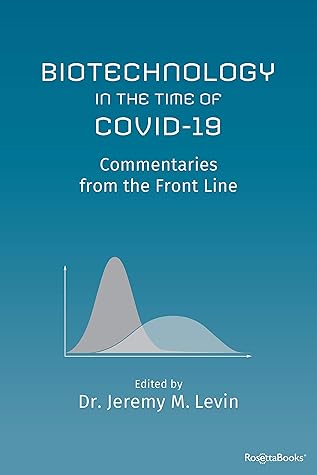More on this book
Kindle Notes & Highlights
Goethe is often quoted as saying, “Treat people as if they were what they ought to be, and you help them become what they are capable of being.”
Broader systemic effects are now evident as well, including involvement of the blood vessels and blood coagulation abnormalities which may underlie many complications, including embolism, stroke, heart attacks, organ failure, and even “COVID toes”—a painful condition probably caused by inflammation of small blood vessels.
the recent association of pediatric SARS-CoV-2 infection with a severe immune disorder that appears very similar to Kawasaki disease, another devasting disease association with blood vessel inflammation, is an ominous sign that children may be at higher risk for disease than we initially thought.
To put this challenge into context, consider that today we are not even fully successful in immunizing the world’s birth cohort for vaccine-preventable childhood diseases, despite decades of advocacy, effort, and investment.
The world spends approximately $2 trillion per year on military defense, yet a relatively minuscule amount on defense against our common global pathogenic enemies.
Throughout history, more people have died from pandemics than from war by a factor of ten. A rational visitor from planet Mars, upon learning of this discrepancy, might question the existence of intelligent life on Earth.
Luck has always played a critical but mysterious role in drug development.
Nature made the human body far too complex for foolproof predictions.
Collective analyses from the Bedford lab at Nextstrain currently project an average of about twenty-five mutations per year in the antigen expression profile of the virus (up from twenty-two mutations/year about a month ago), which we note is roughly in line with other coronavirus strains.
SARS-CoV-2’s mutation rate suggests that each successive vaccine will need to account for future variants of the virus in the same way that flu vaccines attempt to address the emergence of new variants each season.
the rate of key surface antigens targetable by a vaccine still appears considerably slower than the flu and is not expected to drastically shift within each season.
Once a patient is hospitalized, COVID-19 can cause a cytokine storm and coagulopathy that leads to pneumonia, acute respiratory distress syndrome, acute renal failure, myocarditis, and other cardiac complications.
Think of a similar virus, with roughly 50 percent of infected people being asymptomatic and about two weeks from infection to hospitalization for severe patients.
Now increase the fatality rate from about 2 percent to about 10 percent, like the first SARS coronavirus that emerged in 2002–2003. It would have probably wiped out our civilization as we know it.
There are estimates that bats alone have hundreds of thousands of viruses that we have not been expos...
This highlight has been truncated due to consecutive passage length restrictions.
On a planet now teeming with eight billion humans, traveling and interacting constantly, it is only a question of time before this happens again.
We had been forewarned. We did not listen. For decades, virologists and epidemiologists, among many others, have been raising the alarm about the emergence of viruses with pandemic potential, from multiple places across the world.
Start by embracing the scientific method and heeding the opinion of experts in the field.
We are likely to find out more about our immune system and how it interacts with infectious agents (as well as cancer and other disease states) due to this crisis than we did discover in the past one hundred years.
Even then, when it took literally months to go from Asia to Europe, ships were kept away from ports, often for forty days (“quarantine” is related to the Italian quaranta, forty), and with a total world’s population of only 300 to 400 million people, pandemics routinely wiped out entire villages and decimated countries.
wealth has accumulated (as Thomas Pinketty points out in Capital in the 21st Century, to an historically unprecedented level) in the hands of those who manage money, as opposed to those who create primary value.


